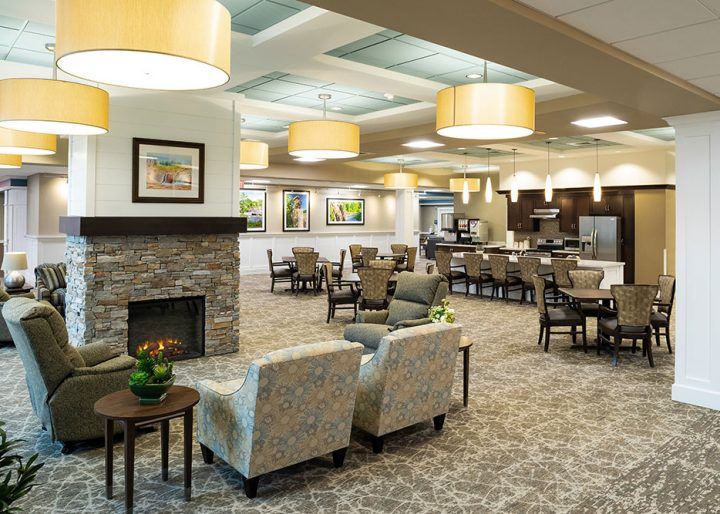Understanding Just How Assisted Living Supports Patients With Mental Deterioration Care Requirements
Assisted living centers are increasingly recognized for their critical role in resolving the complicated care requirements of patients with dementia. By providing a structured yet supporting atmosphere, these facilities not just promote safety and security and health but likewise foster a sense of freedom via customized treatment strategies.
Summary of Mental Deterioration Treatment
Dementia care is progressively essential as the occurrence of dementia-related conditions increases amongst aging populaces. The problem can vary substantially in its discussion, needing customized care approaches to meet private requirements.
Effective dementia treatment involves a multidisciplinary technique, including medical, psychological, and social assistance. Healthcare professionals, caretakers, and member of the family have to team up to develop a caring setting that promotes the well-being of individuals with mental deterioration. Trick elements of dementia care include customized treatment plans, cognitive stimulation treatments, and behavioral treatments focused on enhancing lifestyle.
Additionally, it is vital to identify the emotional and mental challenges encountered by both patients and caregivers. Education and learning and training for caretakers play a pivotal function in fostering understanding and empathy, thereby improving communications with those influenced by mental deterioration. As the demand for dementia treatment continues to increase, the focus should remain on delivering compassionate, person-centered care that appreciates the dignity and preferences of people living with this problem.
(Dementia Care Charlotte)
Function of Assisted Living Facilities
Helped living facilities play an important function in supplying treatment for people with dementia, providing a supportive environment that balances independence with the needed help. These facilities are developed to cater to the special demands of citizens, promoting a sense of community while making sure security and well-being.
In an assisted living setup, experienced employee offer perpetual support, assisting with daily tasks such as bathing, dressing, and drug monitoring. This level of care is crucial for people with mental deterioration, who might deal with these tasks as a result of cognitive decrease. Additionally, centers commonly incorporate memory-enhancing programs and social activities customized to promote cognitive functioning and urge social communication.
The physical setting of assisted living centers is also enhanced for safety, including safe and secure entries, well-lit pathways, and clear signs to aid homeowners navigate their environments. These neighborhoods cultivate a feeling of belonging, minimizing the sensations of isolation that people with mental deterioration might experience.
Personalized Care Program
To ensure that each resident gets one of the most ideal care, individualized treatment plans are crucial in nursing home for individuals with dementia. These strategies are customized to fulfill the special demands, preferences, and difficulties dealt with by each resident, promoting their dignity and top quality of life.
The growth of a personalized treatment strategy generally begins with a detailed assessment carried out by medical care professionals. Memory Care. This evaluation assesses the individual's cognitive abilities, physical health and wellness, psychological well-being, and social preferences. Input from family members and the resident themselves is crucial, as it offers beneficial understandings right into their background, routines, and personal rate of interests
As soon as the analysis is full, a multidisciplinary group collaborates to produce a care plan that describes particular objectives and treatments. This might consist of medicine management, daily living support, and behavioral techniques tailored to reduce stress and anxiety or anxiety.
Routine evaluations and updates to the care plan guarantee it stays appropriate as the individual's problem evolves. Assisted Living. By prioritizing individualized treatment, helped living facilities can enhance the overall health of homeowners with mental deterioration, promoting a setting that appreciates their individuality while resolving their treatment needs efficiently
Engaging Tasks and Socialization
Engaging activities and socialization play a crucial function in boosting the high quality of life for homeowners with mental deterioration in nursing home. These tasks are designed to boost cognitive function, advertise emotional health, and foster links amongst residents. Organized programs, such as art therapy, songs sessions, and memory therapy, provide possibilities for individuals to reveal themselves creatively while additionally causing positive memories.
Socializing is equally important, as it combats sensations of isolation and solitude that can come with mental deterioration. Team activities, consisting of games, group getaways, and common eating, encourage interaction and assistance citizens construct helpful partnerships with peers and caretakers. This sense of neighborhood not just enriches their everyday experiences but additionally contributes to a much more secure emotional setting.
In addition, involving activities can be tailored to individual preferences and cognitive degrees, making sure that each homeowner can take part meaningfully. By developing an atmosphere that focuses on engagement and social interaction, assisted living centers can substantially boost residents' general mental health and wellness, cultivating a sense of function and belonging. Eventually, these campaigns are crucial components of extensive mental deterioration care, dramatically influencing residents' overall wellness and joy.
Advantages of Area Assistance

Additionally, area support promotes social interaction, which is crucial for cognitive and emotional wellness. Engaging with peers and taking part in group activities can boost state of mind and encourage reminiscence, adding to a better feeling of belonging. This social interaction is important, as isolation and isolation can intensify cognitive decline.

(Assisted Living Charlotte)
Final Thought
To conclude, aided living facilities serve as essential environments for people with mental deterioration, providing organized assistance that fosters both independence and safety. The application of personalized care strategies makes certain that each homeowner's unique requirements are fulfilled, while engaging activities advertise social interaction and cognitive engagement. The feeling of area within these centers substantially minimizes feelings of isolation, enhancing overall emotional health. Thus, assisted living plays a vital role in enhancing the top quality of life for clients with mental deterioration.